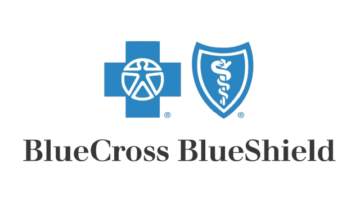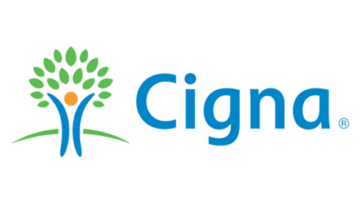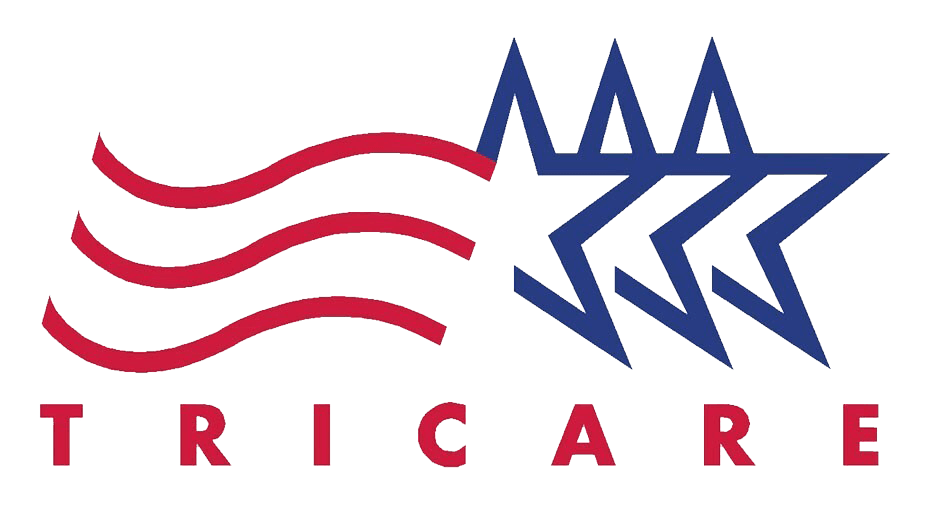It’s hard not to find a screen lurking somewhere in just about every place you go these days. Therefore, it’s no wonder that screen addiction is becoming quite a concern for people of all ages. Screens offer a wide range of conveniences from entertainment, educational learning, to waiver signing- with screens even evolving to VR devices. With such a screen invasion, there is no better time to get a handle on a healthy balance between tech and real life. Knowing the key signs of a screen addiction, is technology taking over is important for not only yourself, but for others who would think a screen is just a harmless invention. While some people are able to enjoy a movie, game, or shopping session online from time to time- others cannot imagine a day without their screen(s). Knowing how to balance everyday life and screentime is essential for anyone not wanting to be lost in the megapixels.
With the ways in which the world works, from businesses to schools to entertainment- how is anyone supposed to realistically be screen abstinent? Never looking at a screen again is nearly impossible, and truly, not necessary to be addiction free. Understanding key signs of screen addiction, is technology taking over is more about creating healthier habits and technology/life balance. Screens are here to stay, although anything is possible. However, the guidance to form a healthy balance between a person’s screen time and real world time is more valuable than ever. Whether it is yourself or a loved one that is showing key signs of screen addiction, the time to act is Now. While Omega Recovery is a superb choice for screen addiction, we are also here to guide anyone toward the facility that best suits their needs for support. Our knowledgeable team is here to give the support needed to not only clients, but anyone seeking a change in their life. Reaching out to a recovery facility is the first, if not most important, step a person can take.
What Are Key Signs Of Screen Addiction And How Does It Start?
How can a person tell if they just enjoy watching a show or movie in their leisure time or are on the path toward a full-blown screen addiction? In all honesty, it can be quite hard to tell from a first person perspective. Oftentimes, those with a screen addiction don’t even realize there is a real concern until it is too late. Screens, or more what we watch on them, can silently slither into control of a person’s habits, subconscious, and everyday life. Screen Addiction Disorder is a set of behaviors and consequences that can occur when an individual uses too much screen time within their day that interferes negatively with their life. Unnoticed and/or untreated misuse and compulsion of screen time can lead to the need for intensive treatment. Prolonged use of digital screens like watching tv, playing video games, scrolling, shopping, sexting, or porn engagement for extended periods of time serves like a digital drug for our brain. From a scientific standpoint screen use releases dopamine in the brain, which can negatively affect impulse control. An effect that can worsen an already big problem. Below are the most observable signs that you or someone you love may have a Screen Addiction Disorder in need of immediate attention.
Key Signs Of Screen Addiction:
- Decline of hobbies or activities once enjoyed without the use of a screen.
- Daily tasks are hampered by screen time.
- Gradual and increasing amount of time spent online via a screen.
- School or work consistency has deteriorated.
- More time is spent with virtual friends rather than with actual friends.
- Feelings of anxiety and/or depression when screen time is lost.
- Screen time is the primary source of pleasure.
- In the home, screens are a major source of contention.
It is important to understand too, that there may be more key signs of a screen addiction that are not listed above. Problems that arise in a relationship and loss of appetite for example may be a key sign of addiction in one person, but maybe not in another. Noticing big changes in yourself or a loved one can be huge in identifying key signs of a potential screen addiction and disorder. In a world where we are constantly distracted and bombarded with technology, it is crucial to pay close attention to the balance of your life and those around you. Are you noticing key signs of a screen addiction, is technology taking over?

The Correlation Between Screen Addiction And Poor Mental Health
Oftentimes, it is the movies, apps, and social media outlets that can help distract us from a stressful day. While stress is an essential part of life, such as asking a person out on a date, giving a speech, or interviewing for a job you’ve always wanted- it should feel like something to run away from. Add in the pressure and expectations that society puts on a person, and you have a recipe for disaster in healthy coping mechanisms. In understanding key signs of a screen addiction, is technology taking over- it’s best to consider any underlying a person’s mental health. Many addiction disorders stem from an underlying problem that was left ignored and/or untreated. Mental health challenges can be complex and affect every part of a person’s life, including any potential addictions. Just like physical health, mental health needs care and attention to help an individual thrive in their life. When mental health is compromised, it can lead to conditions such as anxiety, depression, technology addiction, and more. Untreated mental health conditions can impact relationships, work, feed addictions, and overall well-being. Again, when a person allows technology to take over their focus and attention in life, it is often linked to unaddressed mental health concerns.
Signs You May Need Mental Health Support In Seeking Addiction Treatment
- Stress and emotions are interfering with daily functioning and responsibilities.
- Feelings of being overwhelmed and/or anxious on a daily basis.
- More frequent mood swings that impact personal and work life.
- Trouble sleeping or concentrating.
- Feelings of isolation or disconnected from others.
- Loss of interest in activities once enjoyed.
At Omega Recovery, our compassionate team offers personalized care designed to meet the unique needs of each and every client struggling with their disorder. We combine evidence-based therapies with expert support and holistic modalities of treatment to help our clients regain balance and build resilience. We know the key signs of a screen addiction, is technology taking over? Not at Omega Recovery, not anymore! Our licensed therapists work closely with clients to uncover underlying issues and develop effective coping strategies for stress, anxiety, and depression. Whether through individual counseling, group therapy, or holistic approaches, we empower our clients to take control of their mental health journey. This in turn really helps a person break free from the strong grips of screen addiction.
The Omega Recovery Team Helps Keep Technology From Taking Over
At Omega Recovery, our specialized program addresses the core issues underlying mental health challenges. While treatment may begin with stabilizing symptoms, it’s during this crucial period that real self-discovery and lasting recovery take place. We deeply engage our clients and connect them with compassionate, masters-level therapists who are highly trained in evidence-based and psychodynamic approaches. Through this supportive therapeutic work, clients build a stronger, more empowered sense of their own identity. One that is free from the barriers that once held them back- technology and its addictive devices such as screens. We help our clients struggling with screen addiction move toward a healthier, more authentic life.
Are you or a loved one seeing key signs of a screen addiction, is technology taking over? We know these signs all too well, and our experienced and knowledgeable team know first hand how to break the chains of screen addiction. In our Community Integrated Treatment Model, our Omega clients are engaged in living in the real world once again. We aim to bring back the real joy in a person’s life at a very core level, we make it fun as we help clients find their passion without the use of a screen. Oftentimes, for young adults especially, tech devices such as screens are a substitute for a young person who feels bored, lost, depressed, adrift, and lacking any real sense of purpose or direction in their own life. The Omega Recovery aims to assist our clients in finding that meaningful sense of passion, purpose and direction in their lives. By living cooperatively in a treatment house in a vibrant community in the thriving city of Austin, we use all the social, nature-based, cultural, educational and economic opportunities available in an amazing city like Austin.
Things Someone Can Do Today To Lessen The Grips Of Screen Addiction
Once the key signs of a screen addiction, is technology taking over are confirmed by yourself or a loved one- the next best step is to take action. From setting screen time limits to encouraging other activities once enjoyed, there are many things a person can do to distract them from a life-sucking screen. Below are some things to consider before receiving screen addiction treatment from a supportive recovery center in Austin:
Setting Screen Time Limits – Set a timer, time period, or allotted amount of time that is spent looking at a screen. Limits have an amazing way to understand just how much time is spent on technology or a device.
Make Screen-Free Zones – Starting with the bedroom, schoolroom, and dining room- make some areas in the home, school, and/or work screen-free! Sometimes it is the convenience of having a screen near you that can pull your attention to it.
Sign-Up For Outdoor And/Or Physical Activities – Look into signing up for a sport or physical activity that was once enjoyed. Perhaps even an activity that was never enjoyed before? Going out of our comfort zone is one of the most beneficial ways to grow and expand our mental health in a positive way!
Revisit A Hobby Once Enjoyed – Find some supplies or things on hand that were once enjoyed to help keep key signs of a screen addiction, is technology taking over at bay. This includes hobbies once enjoyed with family and/or friends, as this will also help relationships that have been negatively affected by a screen addiction.
Seek Professional Help – Whether it is yourself or a loved one experiencing key signs of a screen addiction, is technology taking over- the time is now to act. Reaching out to a recovery facility is the first, if not most important, step a person can take.
How Omega Recovery Stops The Key Signs Of Screen Addiction In Its Tracks
The recovering screen addicted client will receive the full clinical impact of an inpatient program as a much more comfortable, non-institutional alternative to traditional inpatient treatment. Dr. Kardaras and his team have found that this type of treatment setting has better recovery outcomes, likely to it being a more authentic living and therapeutic environment. One which can translate into a smoother transition from screens post-treatment. Towards the end of treatment for screen addiction, the client works with their therapist to slowly begin to reintegrate mindful tech usage back into their lives. We help create a “digital re-entry” plan so that our clients and their families have a clear road-map of the transition back to our highly technological world. The recovered screen addicted client needs to know how to balance healthy tech usage back into their lives as they look to get back into school, get a job or pursue any other passion that they may have. We assist our clients in post-treatment transition planning that includes aftercare, case management, peer coaching, job placement, recovery housing and much more.
In addition to receiving world-class treatment for screen addiction, the Omega Recovery family also offers an Alumni Program for support. If there are any key signs of a screen addiction, is technology taking over- our alumni are here to stop it in its tracks! Omega Recovery understands that community integration is key to living a successful life in recovery. That is the reason we created the Omega Recovery Alumni Program. Completing our intensive outpatient rehab is just the first step in a journey to a new way of living. We provide continuing care and support as you transition throughout your journey of recovery. Our dedicated alumni team reaches out to our former clients, checking in on them regarding the status of their recovery, inviting them to alumni events and celebrating milestones in their journey. For more information, visit our website https://omegarecovery.org/ or call us at (512) 601-5407.







